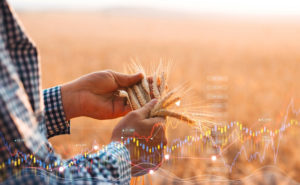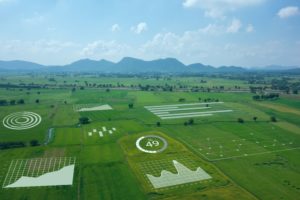In the modern agricultural landscape, the integration of Artificial Intelligence (AI) is not just a luxury but a necessity. Smarter agriculture is about leveraging advanced technologies to enhance various aspects of cultivation, from crop monitoring to yield prediction. The infusion of AI in cultivation is revolutionizing farming practices, making them more efficient, sustainable, and, importantly, more intelligent.
AI-Driven Precision Agriculture
Precision agriculture is at the core of integrating AI in cultivation. It involves using AI technologies to monitor field-level conditions, make real-time decisions, and optimize field-level management. AI-driven precision agriculture enables farmers to manage crops and farming practices more efficiently, allowing for adjustments based on weather, soil conditions, and crop health. This approach ensures optimal use of resources, maximizes yields, and minimizes environmental impact, paving the way for a more sustainable and efficient agricultural future.
Advanced Predictive Analytics
The power of AI extends to predictive analytics, allowing farmers to anticipate future outcomes based on historical data. Advanced predictive models analyze past weather patterns, crop performances, and soil conditions to forecast future crop yields, pest pressures, and disease risks. This foresight enables farmers to make informed decisions, optimize resource allocation, and implement preventive measures, ultimately enhancing crop quality and yield.
Automated Crop Monitoring
The integration of AI in cultivation brings forth automated crop monitoring systems. These systems utilize AI algorithms and sensors to continuously monitor crop conditions, detect anomalies, and assess crop health. Automated crop monitoring reduces the need for manual inspections, ensures timely interventions, and provides insights into crop development and health, allowing farmers to address issues promptly and maintain optimal growing conditions.

Intelligent Resource Management
AI in cultivation is reshaping resource management by optimizing the use of water, fertilizers, and pesticides. Intelligent irrigation systems, powered by AI, assess soil moisture levels and weather conditions to determine the optimal irrigation schedule, preventing water wastage and ensuring that crops receive the right amount of water. Similarly, AI-driven nutrient management systems analyze soil conditions and crop needs to recommend precise fertilizer applications, promoting sustainable farming practices.
Cloud-Based Data Collection
The innovation of Cloud-Based Data Collection is a significant leap forward in the agricultural sector. It facilitates the gathering and analysis of a plethora of agricultural data, from soil conditions to crop health. AI algorithms meticulously analyze this amassed data to derive actionable insights and recommendations on various aspects of crop management, including irrigation schedules and optimal harvest timings.
The utilization of cloud-based platforms ensures that the data is accessible, scalable, and processed in real-time, allowing farmers to make informed, data-driven decisions promptly. This approach to data collection and analysis is instrumental in elevating agricultural productivity, enabling farmers to optimize their practices based on comprehensive insights and fostering a more informed and responsive agricultural landscape.
The Future is Smart
The integration of AI in cultivation is not just transforming agricultural practices but is redefining the very essence of farming. Smarter agriculture is about embracing advanced technologies to optimize every aspect of cultivation, from resource management to crop monitoring. The intelligent use of AI is enabling farmers to predict, monitor, and react with unprecedented precision and efficiency, heralding a new era in agriculture where sustainability and productivity coexist.




